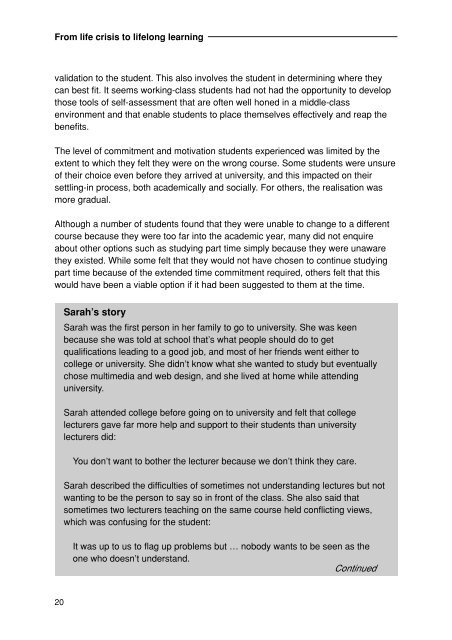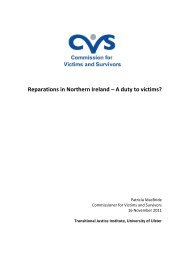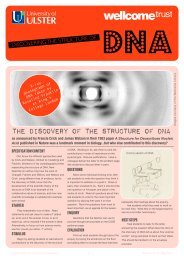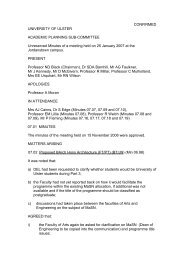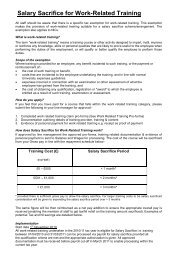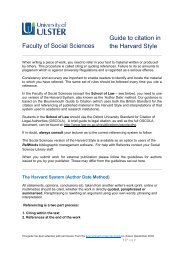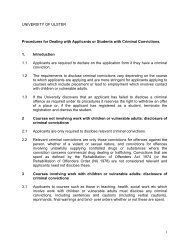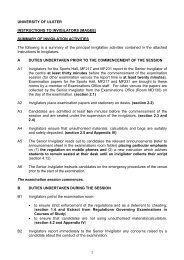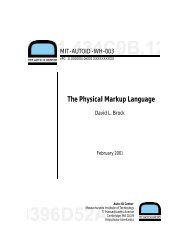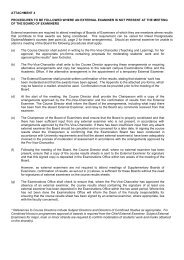From life crisis to lifelong learning: Rethinking working-class 'drop out'
From life crisis to lifelong learning: Rethinking working-class 'drop out'
From life crisis to lifelong learning: Rethinking working-class 'drop out'
You also want an ePaper? Increase the reach of your titles
YUMPU automatically turns print PDFs into web optimized ePapers that Google loves.
<strong>From</strong> <strong>life</strong> <strong>crisis</strong> <strong>to</strong> <strong>life</strong>long <strong>learning</strong><br />
validation <strong>to</strong> the student. This also involves the student in determining where they<br />
can best fit. It seems <strong>working</strong>-<strong>class</strong> students had not had the opportunity <strong>to</strong> develop<br />
those <strong>to</strong>ols of self-assessment that are often well honed in a middle-<strong>class</strong><br />
environment and that enable students <strong>to</strong> place themselves effectively and reap the<br />
benefits.<br />
The level of commitment and motivation students experienced was limited by the<br />
extent <strong>to</strong> which they felt they were on the wrong course. Some students were unsure<br />
of their choice even before they arrived at university, and this impacted on their<br />
settling-in process, both academically and socially. For others, the realisation was<br />
more gradual.<br />
Although a number of students found that they were unable <strong>to</strong> change <strong>to</strong> a different<br />
course because they were <strong>to</strong>o far in<strong>to</strong> the academic year, many did not enquire<br />
about other options such as studying part time simply because they were unaware<br />
they existed. While some felt that they would not have chosen <strong>to</strong> continue studying<br />
part time because of the extended time commitment required, others felt that this<br />
would have been a viable option if it had been suggested <strong>to</strong> them at the time.<br />
20<br />
Sarah’s s<strong>to</strong>ry<br />
Sarah was the first person in her family <strong>to</strong> go <strong>to</strong> university. She was keen<br />
because she was <strong>to</strong>ld at school that’s what people should do <strong>to</strong> get<br />
qualifications leading <strong>to</strong> a good job, and most of her friends went either <strong>to</strong><br />
college or university. She didn’t know what she wanted <strong>to</strong> study but eventually<br />
chose multimedia and web design, and she lived at home while attending<br />
university.<br />
Sarah attended college before going on <strong>to</strong> university and felt that college<br />
lecturers gave far more help and support <strong>to</strong> their students than university<br />
lecturers did:<br />
You don’t want <strong>to</strong> bother the lecturer because we don’t think they care.<br />
Sarah described the difficulties of sometimes not understanding lectures but not<br />
wanting <strong>to</strong> be the person <strong>to</strong> say so in front of the <strong>class</strong>. She also said that<br />
sometimes two lecturers teaching on the same course held conflicting views,<br />
which was confusing for the student:<br />
It was up <strong>to</strong> us <strong>to</strong> flag up problems but … nobody wants <strong>to</strong> be seen as the<br />
one who doesn’t understand.<br />
Continued


